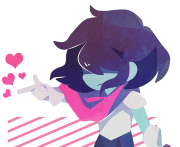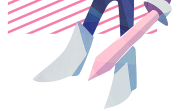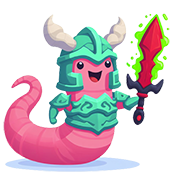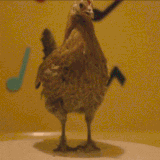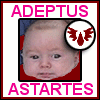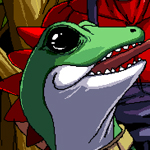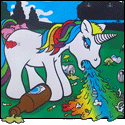- Soonmot
- Dec 19, 2002
-
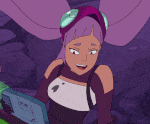
Entrapta fucking loves robots



-
Grimey Drawer
|
quote:
CHAPTER 12
“THEY’RE HEADING FOR OUR PEOPLE!”
“It was peaceful,” Shy Hwang said to his daughter.
It took her a moment to track. Was he talking about Yago’s coup? The disturbing landscape? No, of course not. He meant her mom’s death. 2Face blushed with the good half of her face.
“I know, Dad. We were all asleep. She was asleep. It was peaceful.”
Her father let out a stifled sob. He wiped tears from his eyes and set his face in a parody of determination. 2Face had never thought much about her parents’ relationship. It had always been there. They argued occasionally but made up quickly. But of course they’d been together for seven years before 2Face was born. Not that 2Face wasn’t devastated by her mother’s death. But, to her shame, she had to admit that her father’s grief was deeper, more personal.
She resisted the insidious edge of contempt for her father. It was right that he grieve. She was the bad one, she was the one who was failing her mother’s memory. Her father was reacting the way a man who loved his wife should. And yet, he had to be able to see that there was a crisis before them, a mess that required action.
He’d be okay. He’d be okay in time. That was it, he needed time. Why didn’t she? How had she turned so quickly away from grief? Maybe she was more resilient. Or maybe she was just more cold-blooded, less feeling than her father.
She reached for her father to take his arm, to comfort him, but something held her back. Instead she said, “Maybe we should hurry up or Mo will get way ahead of us.”
Shy Hwang shook his head, trying again to resume the mantle of parental authority. “No. I’ll call him back. We should stick together and take our time. We’re in a strange place.”
He yelled to Mo’Steel, who pretended not to understand his words and simply waved back. So 2Face and her father accelerated their pace, passing beneath a sketchy tree whose trunk seemed to have been constructed of three or four irregular slices of bark piled together. Brush strokes. Miss Blake might be a simpering throwback, but she was right about this. It was all some weird 3-D representation of a painting. How had they done it, the aliens? Holograms and force fields? Genetic manipulation? Or was none of this real and the Wakers were still sleeping, sharing the same dream?
One thing was for sure: If any of this was real, the aliens, if aliens they were, had vast powers. It had to require enormous energies to excavate the gray-shade canyon, enormous power to grow this fabulously strange landscape.
Why? Why would an alien race want to do this? What was the motive — there had to be one. At least it wasn’t an aggressive move, that much was obvious. The aliens had gone to a lot of trouble to create an environment for their human guests. That had to be good news. In fact, very good news.
No, 2Face told herself, the real dangers were from within, from Yago and Billy Weir and Tamara and the baby.
Mo’Steel had reached the river and was waving them forward enthusiastically. They pushed on through the clinging pseudo-grass. At least it was downhill now. The river was like the trees, a jumble of agitated, moving, tumbling brush strokes. Up close you could see that it wasn’t liquid at all, not in the way it behaved, not in the way it moved. It reminded 2Face of watching clothes in the dryer, tumbling, roiling bits of blue and green and flecks of white in motion.
“It’s not water,” Shy Hwang said, disappointed.
But Mo’Steel grinned. “Watch this.” He knelt down and pushed his plastic pitcher into what seemed so solid. The brush stroke of blue came apart, sprayed around the obstacle, and to 2Face’s amazement, water, actual clear water began to fill the jug.
“Is that water?” 2Face asked.
Mo’Steel tipped the jug up to his mouth and drank. “It’s not Pepsi,” he said and passed the jug to 2Face.
It was water. Or something that sure tasted and felt like water, though unpleasantly lukewarm.
“Water,” Shy Hwang agreed.
“Hey,” Mo’Steel said. He was frowning, staring off into the distance. “Hey, scope that.”
The creatures were on the far side of the river and about a thousand feet upstream. They were moving, standing it seemed, but moving swiftly, effortlessly. Almost as if they were riding horses that were obscured by the grass.
They were the color of rust or dried blood. It was impossible to gauge their size. From a distance they appeared to be no more than man-sized, but with a multiplicity of spidery legs and very possibly more than one head.
They were surely not anything envisioned by Miss Blake’s Pierre Bonnard, the artist who had painted this meadow and this river. They veered suddenly and zoomed effortlessly across the water.
“They’re heading for our people!” 2Face said. “Come on!”
They started running. Running and yelling. There was no sign that the others had spotted the alien Riders.
“Hey! Hey!” Mo’Steel yelled. “Look! Look!”
But it was too far for voices to carry clearly. It looked as if the main group was huddled in some sort of debate. The Riders moved swiftly, faster than a running human, not so fast as a car. They were three points of a collapsing triangle: 2Face and her group, the main group of Wakers, and the Riders. The Riders would reach the Wakers first.
Then, the Wakers noticed. 2Face thought she saw Tamara pointing. There was a faint sound of yelling.
2Face was gasping, panting, as out of shape as . . . as a person who’d been asleep for five- hundred years. Mo’Steel had farther to run but he’d caught up with 2Face and Shy Hwang and was now pulling ahead. 2Face saw the Wakers drawing closer together, instinctively gathering their strength. The Riders — there seemed to be half a dozen— slowed and stopped twenty or thirty feet from Wylson Lefkowitz-Blake, who stepped out front, hands held out, palms up.
2Face saw Wylson shake her head. Then again, more violently. One of the Riders was on the move, zooming back and forth in front of her, seeming to taunt her, waving a curved stick like a dull-bladed scimitar at her. It was a challenge. A challenge to battle.
Wylson shook her head adamantly and Errol moved forward, the gallant, seeking to put himself between Wylson and the gaunt Rider. The Rider tossed the curved stick at Errol and Errol snatched it out of the air. He looked at
it, seemed to be trying to figure out what it was or how to hold it. There was a horrific shriek, an unearthly cry that was like metal gears grinding on ball bearings.
The Rider zoomed forward and stabbed a spear into Errol’s thigh. Errol fell to one knee. Mo’Steel was almost there. He was going to charge the Rider but two other Riders swooped in to block him. 2Face could see now what they rode. Not animals, but nearly flat, circular disks less than four feet in diameter. There was no obvious engine. No way for the Riders even to hold on but by careful balance. They seemed to steer with their weight, leaning this
way or that. The disks would scoot, with gathering speed, just inches above the grass tops.
The two outriders blocked Mo’Steel and he came to a confused stop. 2Face caught up with him, grabbed his arm to keep him from doing anything stupid. Up close now, 2Face’s impression was confirmed: The creatures had two distinct, but different heads. At least one of them did. The other Rider had a stump, six inches of neck and
nothing on top.
They stood on two jointed legs, each split into two short calves or elongated feet. The legs were jointed at the hip, at the split, again halfway down the calves, then at what might be ankles. The upper body was narrow and rigid, almost glossy, like a beetle’s carapace. They had two long arms, jointed much like human arms, and four-fingered hands.
The heads were the only break with symmetry. One head was little more than a mouth stuck on a neck, a hideous, razor-toothed sock-puppet of a head. The other, what had to be the main head, was dominated by two large, glittery gold compound eyes, like a fly’s but with fewer facets. Directly below, a row of four smaller eyes, black irises in gold orbs. The mouth was small, round, and seemed to be the origin of that terrible metallic voice.
The lead Rider, or surfer as he now seemed, zoomed a circle around Errol, taunting him in his harsh voice, jabbing a hand at the weapon in Errol’s hand. Errol used the weapon as a crutch, stood hobbling on one leg. Then, far too slowly, with no possible way to fool his antagonist, Errol swung the scimitar, caught nothing but air, and was
carried over by his momentum. He fell facedown on hands and knees. The alien stabbed him in his back and Errol cried out.
Again the taunting, the circling.
“Stop it! Stop it!” 2Face screamed, and realized she was not the only one. Almost everyone was yelling or crying, but no one could move as the gliding Riders formed a sort of moving circle around the two combatants. Errol was panting, sobbing, facedown in the brilliant grass. He made a feeble attempt to stand up. That movement was all the alien needed. He swept in, stabbed his spear into the back of Errol’s neck, and twisted it savagely. Errol was no more.
The aliens rode away a few paces, stopped, grouped together. 2Face had reached the others. Everyone stood, waiting, helpless. Mo’Steel started for Errol’s dropped scimitar.
“No!” Jobs yelled. “Mo! Don’t do it. Don’t touch it! It’s a challenge, let it lie, let it lie.”
Mo’Steel hesitated, fingers just inches from the hilt. The aliens watched him.
Slowly Mo’Steel took a step back. “Not this time,” he said to the killer. “Later on. We’ll see.”
The aliens took a last look, turned, and sped away out of sight.
another consistent through line of all these books: cool weird aliens
quote:
CHAPTER 13
“YOU DON’T GO DEER HUNTING WITH A TANK.”
Night came to the meadow, a night of strange amethyst clouds and orange swirls in a troubled sky. Violet Blake found it fascinating. Was this scene an actual painting? Or were the aliens riffing on a theme? It might be Bonnard, or not. Was whoever or whatever operated the machinery on this strange world now composing its own art?
No one else seemed to care. They’d managed to make a small fire of the improbable grass and even more improbable wood. They were beside the river now, and so everyone had water to drink, and even wash in. The shuttle stood at a distance, unlit except by starlight. It seemed strangely small. Lonely. Violet’s mother was still in charge, as much as anyone could be said to be in charge of the scared, shaken, disorganized rabble. They huddled together talking endlessly, planning, abandoning plans, plotting, squabbling. Violet’s mother was trying to hold a board meeting.
Trying to transfer the skills she had honed in big business to this situation. Demanding concrete answers from people who had only speculation to offer. Yago was her toadie, seconding every motion, clinging tightly to what power there was, calling her “boss.” He was a work of art himself, Yago was, artificial, at least to some degree.
Cat DNA in his petri-dish golden eyes caused them to glow in the dark. Maybe his perfect bronze skin was a natural product of his African-American mother and Caucasian father, but Violet doubted it.
In return for the shameless toadying, Violet’s mother favored her one sure ally, complimenting Yago’s good sense. They were getting to be quite an act. Olga Gonzalez, Mo’Steel’s mother, had little to say except on matters to do with biology, her scientific speciality. She had a great deal to say about the anomalies in the plant life — the mismatch between what was taking place at the cellular level and what was observable in the developed species. But when Wylson demanded information on the aliens, Olga could only plead ignorance.
“There’s no such thing as an expert on alien biology,” Olga snapped after repeated questioning. “We’ve never encountered aliens. You know as much as I do.”
Shy Hwang sat cross-legged with head hung down, lost in memory. From time to time he would reach for his daughter, to hold her close, to hug her, and at those times Violet felt a twinge of jealousy and resentment at 2Face’s grudging response. 2Face seemed a cold little creature to her.
Another adult Waker had emerged from the shuttle, a man named Daniel Burroway, yet another scientist, an astrophysicist. He was an arrogant man, convinced of his own brilliance, and, it seemed to Violet, almost brutally indifferent to the fact that the three other members of his family had not survived. He talked a lot. If there was anyone who would challenge Wylson, it would be Burroway.
Billy Weir lay silent. Still. Jobs tended to him, paying more attention to him than to his own brother, Edward, who hummed to himself while making little collections of leaves and rocks. Some of the other younger kids sat crying, as alone as kids could be. The newly awakened sixteen-year-old named Anamull stared, slack-jawed, into the fire. A
burnout, Violet guessed. A big, hulking kid with brown hair and steroid arms, and no affect.
D-Caf sat by himself, too, ignored, excluded, shunned. According to Jobs, D-Caf had fired the shot that killed the mission’s copilot. A killer, though he seemed more pathetic than dangerous to Violet. He kept smiling at people, looking for an acceptance that no one would offer. He was jumpy, energetic, a shaggy puppy who couldn’t understand why he’d been spanked and put in the corner.
It was not a group to inspire confidence, Violet thought.
And then there was Tamara Hoyle. Along with her own mother, the type of woman Violet disliked most. A mannish woman. When she stood it was at parade rest, when she sat it was with legs precisely folded and back perfectly straight. She looked as if, all other things being equal, she could fight any of the men and win.
But all other things were not equal. Tamara Hoyle held the eyeless baby that never ate, never cried, only chuckled from time to time, as if at some secret joke. The baby was a cherub with a knowing, leering, too-wise face. The mother might almost have seemed indifferent to the child. She never looked at her baby. She never comforted it. She carried it easily, place to place, always holding it face-out as if she were allow-ing it to see the world. Of course the baby could not possibly see.
“They can’t be the ones who created all of this,” Daniel Burroway was arguing in his loud and pedantic tone. “These aliens you describe, Riders or surfers, whatever appellation you choose, were clearly warriors of some sort. It requires a subtler intelligence to imagine this environment, to meld the biologically functional with the artistic. As Dr. Gonzalez has confirmed, these are, biologically speaking, common plants. The grass is grass, despite the overt physical differences. That all argues for a larger intelligence than the sort of brutes you describe.”
Violet Blake could dispute that point — many violent societies had created great art and shown great intellectual creativity. But she didn’t have the will or the energy to be argumentative at the moment. She was desperately tired and hungry. The talk was going nowhere, accomplishing nothing.
If her opinion was asked for she would give it. But anything she said would almost surely lead to a clash with her mother and her sycophant, Yago.
Jobs evidently felt no such hesitation. “I agree with Dr. Burroway, but not for his reasons.”
Burroway frowned. “Then please, do tell,” he said with a mock bow.
“It’s that any warrior society uses its cutting-edge technology for fighting. I mean, humans, right? The military had planes before civilians, used rockets before civilians did, set up the Internet, global positioning, nuclear power plants, lasers, on and on. Now, those surfboards the Riders are using, it is cool technology, no question, but it’s not the cutting edge for whoever did all this terra forming. Or art forming, whatever you call it. I’m just saying, anyone who can split the sky right down the middle into a gray sky and a blue sky, or cause water to flow in packets. . .they can do better than antigravity skateboards, or whatever those things were. Not to mention spears and swords.”
Violet was amused to hear such a ready flow of words. Jobs was not a great talker, unless the subject was technology.
“The Riders might be the aliens’ pets, for all we know,” 2Face said. “Or maybe . . .” She paused, sending a direct question to Violet. “Maybe those Riders are part of the scene. I mean, maybe they’re images drawn from the same data the aliens took this environment. Is that possible?”
Violet heard her mother snort dismissively. “I think maybe we should stick to talking about ways to deal with the situation. This is not an art seminar.”
“Could be those Riders just didn’t think it was woolly enough using ray guns or whatever,” Mo’Steel suggested, speaking for the first time. “Maybe they weren’t looking for a gimme. Maybe they were looking to squeeze the A gland.”
Pretty much everyone stared at him, mystified.
Jobs translated. “He’s saying maybe I’m wrong. Maybe the Riders do have better technology but this isn’t them making war against us, this is just them, you know, engaging in a sport. Maybe they were looking for a challenge, a thrill. Squeeze the A gland — you know, adrenal gland.”
“You don’t go deer hunting with a tank,” Anamull agreed.
Violet hadn’t thought he was even listening.
Then, “What’s that?” D-Caf cried and leaped to his feet. “Shh! I heard something.”
Silence.
The sound of something moving through the grass. And then, “Hello? Is anyone there?”
Two people staggered into the firelight. One, a big man, was leaning for support on a smaller man. Violet could see that the larger man’s right leg was unable to bear any weight. The big man dropped to the ground and panted, unable to speak. Then he noticed Billy Weir and uttered a gasp or a sob. He crawled over to him. “Billy! Billy! It’s Dad!”
No answer. Billy Weir just stared.
The smaller man said, “Glad to see all of you. I’m very, very glad to see all of you. We saw all the empty berths, we knew others had awakened before us. But we couldn’t figure out where you were. Then we saw the fire.”
Violet noticed a distinct accent, a sort of lilt. The man was dark-skinned but with Caucasian features. Indian, Violet guessed. Olga stood up and carried a water jug to the injured man, then offered it to the other newcomer.
“My name’s Tathagata Rajagopalachari. I am afraid that my American friends call me T.R. My companion there is William Weir. He said to call him Big Bill. He is hurt, as you can see.”
“Welcome to both of you,” Wylson said. “What do you do, T.R.?”
“Do? Oh, yes. I am a psychiatrist.”
Violet almost laughed at the silent consternation that announcement caused. The other man moaned in pain and grabbed his leg hard, as though trying to squeeze the pain out of it. He paid no attention to the group but kept up his effort to get a response from his son.
“Do you have a doctor?” T.R. asked. “As I said, my friend here is not well. And I am afraid that my medical training occurred a very long time ago indeed.”
“You’re the closest thing we have to a doctor,” Olga said. “I’m a biologist but I don’t have an M.D., not even one from a long time ago.”
T.R. nodded. “Oh, that is distressing. Perhaps among the other survivors?”
Wylson shook her head. “So far we’re it, Doctor. We expect a few more Wakers like the two of you, but as you saw, the rest did not survive the trip.”
T.R. frowned. “As I saw? But I saw nothing to suggest any such thing.”
“We’re talking about the variously decomposed corpses in the berths,” Burroway said impatiently.
“But . . . But I looked carefully. I observed five more individuals in states of rest, two of them beginning to awaken, but there were no dead. The other berths were empty.”
UH OH!!!
|












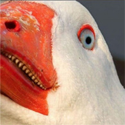
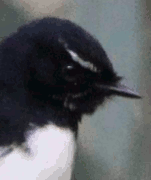
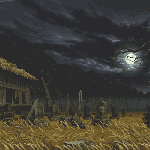
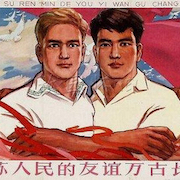
 `
`

